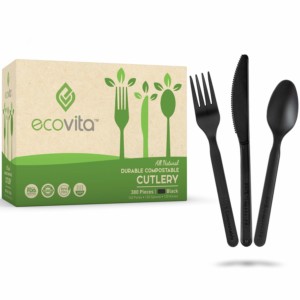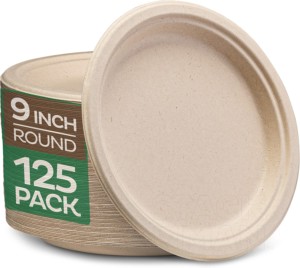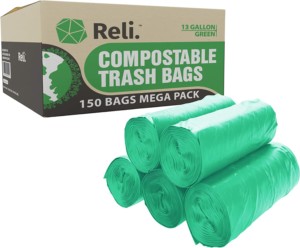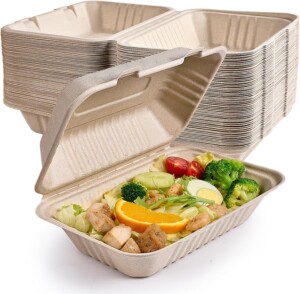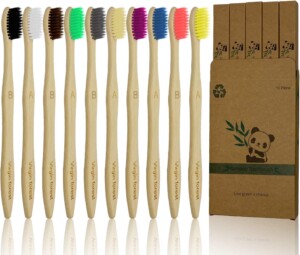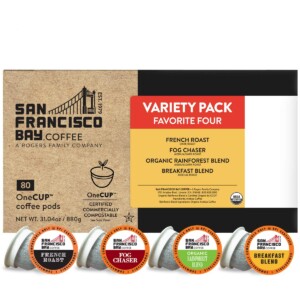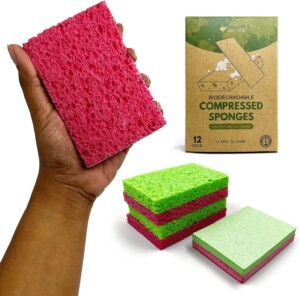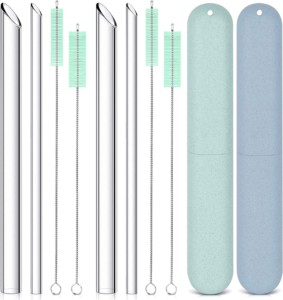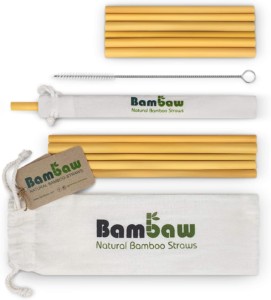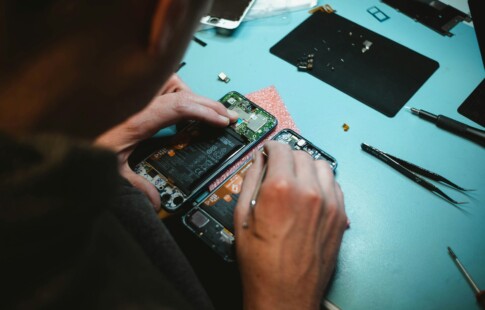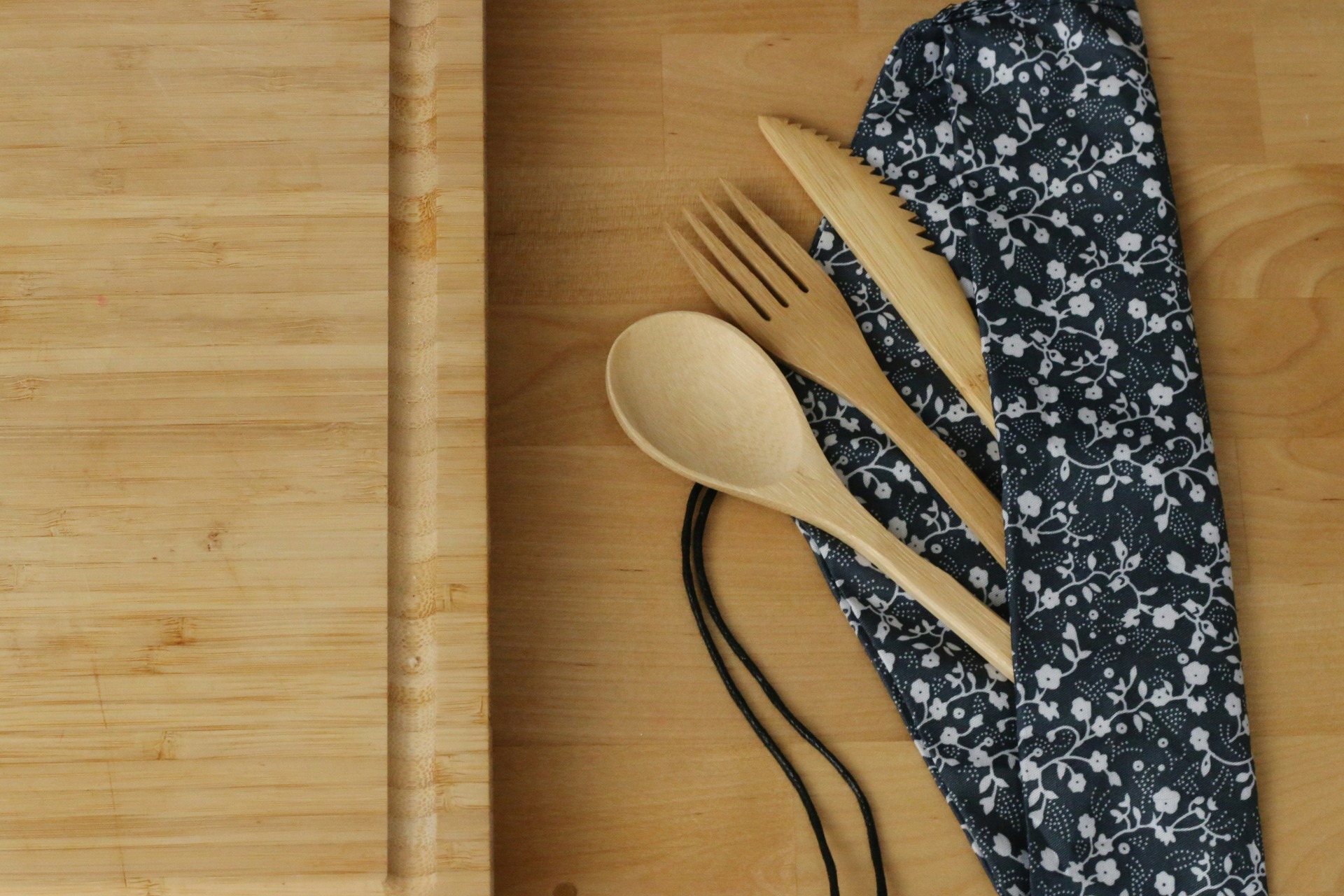
10 Compostable Products Revolutionizing Sustainable Living
We are reader-supported. When you buy through links on our site, we may earn affiliate commission.
Compostable products are transforming people’s journey towards sustainable living. They break down entirely in compost, turning into nutrient-rich soil without leaving harmful residues. It is crucial in reducing waste and promoting a healthier environment.
Now, understanding how compostable products differ from biodegradable ones is essential. While both can decompose, compostable items require specific settings to break down within a certain time frame. On the other hand, biodegradable products decompose naturally but can take varying lengths of time and sometimes leave behind metal residues.
Here are 10 biodegradable and compostable items that significantly impact the environment and help people live more sustainably. From everyday household products to genius innovations, these top picks lead the way in eco-friendly living.
1. Compostable Cutlery
It is a fantastic alternative to traditional plastic utensils. Compostable cutlery is made of bioplastics from renewable resources like corn starch, sugarcane or tapioca roots. Some are made from other plant-based materials like birch wood or bamboo.
Unlike plastic, which can take hundreds of years to break down and often pollutes oceans and landscapes, compostable cutlery breaks down into organic matter, enriching the soil instead of harming it.
2. Biodegradable Plates
Biodegradable plates are a sustainable alternative to conventional plastic or styrofoam plates, offering ecological and practical benefits. Made from natural, renewable materials — like sugarcane bagasse, wheat straw or palm leaves — these plates decompose naturally, significantly reducing waste in landfills.
The impact of switching to biodegradable plates in the context of events and catering is substantial. These gatherings often generate large amounts of waste, which is traditionally non-biodegradable.
Organizers can significantly reduce their plastic footprint by using compostable products. It helps minimize environmental damage and aligns with the growing demand for green and sustainable practices in the hospitality industry.
3. Eco-Friendly Diapers
These diapers are typically made from plant-based materials like bamboo, cotton or other biodegradable fibers. They are free from chemicals and plastics in conventional diapers, making them safer for a baby’s sensitive skin and better for the environment.
Globally, over 300,000 of their single-use counterparts end up in the landfill every minute. Eco-friendly diapers offer the same level of comfort and protection as traditional diapers but with a significantly lower environmental impact. However, they decompose much faster, often within a few months to a few years.
4. Compostable Trash Bags
These trash bags are made from plant-based materials, like corn starch, PLA and other compostable polymers. They decompose much faster than and more safely than regular plastic bags. They turn into carbon dioxide, water and biomass, leaving no toxic residue behind.
When composted in industrial settings, these bags break down under high temperatures significantly faster than in home composting systems. This rapid decomposition reduces landfill waste and the emission of greenhouse gases — like methane — which organic waste commonly produces in landfills.
5. Sustainable Food Packaging
This type of packaging is typically made from biodegradable materials — like corn starch, mushroom roots, seaweed or recycled paper — offering a greener alternative to traditional packaging.
Traditional packaging contributes to greenhouse gas emissions at every stage of its life cycle, from production to disposal. Using sustainable food packaging reduces the reliance on fossil fuels used in plastic production, minimizes waste and often uses less energy in manufacturing processes.
6. Eco-Friendly Toothbrushes
Eco-friendly toothbrushes, often made from materials — like bamboo or biodegradable plastics — offer an alternative to traditional plastic toothbrushes. They are comparable to their plastic counterparts in terms of longevity.
They typically last for the recommended three to four months of use before needing replacement. It makes them a practical choice for regular use without sacrificing dental hygiene standards.
Some biodegradable plastic toothbrushes may require industrial composting facilities to break down efficiently. Eco-friendly toothbrushes, on the other hand, especially those with bamboo handles, decompose naturally in a compost environment.
7. Compostable Coffee Pods
Compostable products are a significant innovation in the coffee industry, addressing the environmental issues associated with traditional coffee pods. Made from renewable materials — like corn starch, sugarcane or paper — these pods break down quickly in composting conditions.
They provide the same convenience and variety as traditional pods but without the lasting environmental impact. Their standard counterparts are often made from plastic and aluminum, which are challenging to recycle and contribute significantly to landfill waste. More than 100 million coffee pods go to landfills daily, taking hundreds of years to decompose.
Compostable coffee pods offer a solution to this problem. They become organic matter, contributing to soil health instead of polluting the environment. Coffee lovers can enjoy their daily brew with the added satisfaction of reducing their environmental footprint.
8. Biodegradable Cleaning Sponges
These sponges are typically made from natural materials — like cellulose, loofah or coconut fibers — which are renewable and biodegradable. The benefits of using biodegradable cleaning sponges are significant.
They effectively clean various surfaces without scratching, just like conventional sponges. In addition, being made from natural materials, they are free from the plastics and synthetic fibers in traditional sponges.
Regular cleaning sponges are often made from polyurethane, a type of plastic that does not biodegrade and can release microplastics into the water system. On the other hand, biodegradable sponges break down naturally at the end of their life, reducing plastic waste.
9. Compostable Phone Cases
These cases are typically made from biodegradable materials like PLA, wheat straw, bamboo or recycled plastic. They offer the same level of protection for your phone as traditional plastic cases, guarding against drops, scratches and daily wear and tear.
Additionally, they often come in various styles and colors. Compostable cases last for the product’s life span, after which you can compost or break them down more quickly and safely in the environment than conventional plastic cases.
It is a significant advantage because 1.6 billion phone cases reach landfills annually. Consumers can protect their phones by choosing compostable phone cases while reducing their environmental footprint.
10. Eco-Friendly Straws
Eco-friendly straws are a sustainable alternative to traditional plastic straws, significantly contributing to plastic pollution. These straws are made from various biodegradable and compostable materials, offering a practical solution to reduce plastic waste.
Being biodegradable, they break down naturally, reducing pollution and harm to marine life. For consumers, these straws offer a guilt-free way to enjoy drinks without contributing to single-use plastic.
These straws are often made of paper, bamboo, wheat stalks, sugar cane and PLA. Eco-conscious consumers commonly use one made of paper, which is compostable and biodegradable. Meanwhile, plant-based PLA straws often require industrial composting facilities to break down effectively.
Share on
Like what you read? Join other Environment.co readers!
Get the latest updates on our planet by subscribing to the Environment.co newsletter!
About the author

Steve Russell
Steve is the Managing Editor of Environment.co and regularly contributes articles related to wildlife, biodiversity, and recycling. His passions include wildlife photography and bird watching.
